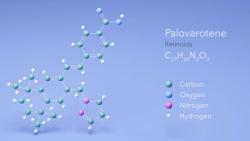
OR WAIT null SECS
- About Us
- Advertise
- Contact Us
- Editorial Info
- Editorial Advisory Board
- Do Not Sell My Personal Information
- Privacy Policy
- Terms and Conditions
© 2026 MJH Life Sciences™ , Pharmaceutical Technology - Pharma News and Development Insights. All rights reserved.
Vaccine Development Builds on COVID-19 Breakthroughs
Advances in vaccine development are creating partnerships and stimulating clinical trials to develop new mRNA applications.
The remarkable success of utilizing messenger (mRNA) technology to combat the severity and spread of COVID-19 is transforming the world of vaccine discovery and testing, stimulating a new generation of vital preventives for global diseases. Industry’s ability to deliver COVID-19 vaccinations in the United States and internationally is generating multiple initiatives to further compress the timeframe for vaccine development and production. New vaccines to combat cancer and to better prevent a range of infectious diseases are being tested, as are more efficient seasonal influenza shots that more closely match prevalent viral strains.
These developments are fostering new partnerships among vaccine makers and initiating more clinical trials to develop mRNA therapeutics and preventives for a range of serious conditions, including melanoma, Zika, malaria, and shingles. New shots to prevent pneumococcal disease are in development from several firms. Moderna made waves with data indicating 84% effectiveness for a new preventive for RSV (respiratory syncytial virus) as well as progress in developing a vaccine to help combat melanoma (1). Takeda is gearing up to launch a new dengue vaccine that provides several years of protection in anticipation of FDA approval later this year (2).
And despite plans to end the COVID-19 public health emergency, additional preventives for that virus continue to emerge. Novavax gained FDA approval of its protein-based COVID-19 vaccine only in July 2022 and recently announced the sale of 1.5 million vaccine doses to the federal government to cover the transition from government-supported shots to a commercial market (3,4). But a vaccine to prevent HIV appears as elusive as ever, as Johnson & Johnson’s Janssen unit recently reported failure to show effectiveness in clinical trials, adding to the list of disappointing efforts to block continued spread of this lethal disease (5).
Annual shots for COVID-19?
These developments speak to the need to review research and regulatory approaches for testing, assessing, and marketing potential vaccines. FDA’s Vaccines and Related Biological Products Advisory Committee (VRBPAC) agreed on the value of a common bivalent anti-COVID shot for all patients that targets both the original COVID-19 strain and the Omicron subvariants.However, the expert panel was less certain about recommending annual vaccination against COVID-19 due to uncertainty about the continued effectiveness of the current shots and about what time during the year would be best for a national COVID-19 vaccination campaign (6).
Pfizer, Moderna, and Novavax reported to VRBPAC on efforts underway to produce reformulated bivalent vaccines and supported the plan for a common formulation for all manufacturers to simplify vaccination recommendations and reduce patient questions about the effectiveness and safety of vaccines from different manufacturers. The three firms also said that they are already studying combination shots for flu and COVID-19 and emphasized the need for specifics from FDA on the process for updating vaccine strains and the timing, process, and methodology for producing a data package for new licensure.
While the expert panel and officials from FDA and other health agencies acknowledged the value of utilizing mRNA platforms to produce anti-COVID vaccines so quickly and effectively at the start of the pandemic, some panel members called for further analysis of how well the new formulations provide long-term protection, avoid safety issues, and emphasized the need to assess whether more traditional vaccine production methods may have broader benefits moving forward. They urged additional research on the possible need for different vaccination schedules for both young children and older adults with health impairments.
In concluding the advisory committee meeting, Peter Marks, director of the Center for Biologics Evaluation and Research (CBER), reiterated the importance of a “data-driven approach” to achieve a vaccine regimen that is as simple as possible. But he also noted the value of monitoring vaccine safety and assessing product effectiveness in shifting to a next generation of COVID-19 vaccines able to provide “greater depth of protection.”
Combatting misinformation
Despite these advances, criticism of FDA vaccination recommendations has escalated, generating vaccine hesitancy among broader population groups. A survey by the Kaiser Family Foundation in December 2022 found that one third of parents now oppose required vaccination of school-age children for measles and other infectious diseases (7).
Politics has driven vaccine hesitancy even more on the state level. Florida Governor Ron DeSantis made waves in December 2022 by disparaging vaccines and even charging vaccine makers for fraud in promoting their preventives—a strong about-face from a political leader who strongly supported vaccines during the Trump administration and sought millions to fund Florida’s vaccination campaign to combat COVID-19.
To bolster public confidence in decisions by FDA alongside federal and state health agencies, former FDA leaders from both sides of the aisle have joined FDA Commissioner Robert Califf in pressing for health professionals, disease advocates, and the academic community to ramp up efforts to counter such anti-vaccine fears and misinformation, much of it presented in online communications. There’s even talk of permitting manufacturers to directly address false or misleading information on their vaccines and medical products, provided that FDA permit firms to present clinical data and real-world experience on public platforms. Vaccine experts hope that a shift away from differing COVID-19 vaccine compositions and varying immunization schedules, along with clearer alignment between US and European vaccination recommendations, will generate wider support for preventing infection from old and new infectious diseases.
References
- Moderna. Moderna Announces mRNA-1345, An Investigational Respiratory Syncytial Virus (Rsv) Vaccine, Has Met Primary Efficacy Endpoints in Phase 3 Trial in Older Adults. Press Release. Jan. 17, 2023.
- Takeda. Takeda’s Biologics License Application (BLA) for Dengue Vaccine Candidate (TAK-003) Granted Priority Review by US Food and Drug Administration. Press Release. Nov. 22, 2022.
- FDA. Coronavirus (COVID-19) Update: FDA Authorizes Emergency Use of Novavax COVID-19 Vaccine, Adjuvanted. Press Release. July 13, 2022.
- Novavax. US Government and Novavax Extend Partnership, Securing Up to 1.5 million Additional Doses of Novavax’s COVID-19 Vaccine. Press Release.
Feb. 13, 2023. - Johnson & Johnson. Janssen and Global Partners to Discontinue Phase 3 Mosaico HIV Vaccine Clinical Trial. Press Release. Jan. 18, 2023.
- FDA. Vaccines and Related Biological Products Advisory Committee Meeting, January 26, 2023. FDA Briefing Document. Future Vaccination Regimens Addressing COVID-19. https://www.fda.gov/media/164699/download (accessed Feb. 16, 2023).
- Lopes. L; Schumacher, S.; Sparks, G.; Presiado, M.; Hamel, L; Brodie, M. KFF COVID-29 Vaccine Monitor: December 2022. KFF.org. Dec. 16, 2022.
About the author
Jill Wechsler is Washington editor for Pharmaceutical Technology.
Article details
Pharmaceutical Technology
Vol. 47, No. 3
March 2023
Pages: 14–15
Citation
When referring to this article, please cite it as Wechsler. J. Vaccine Development Builds on COVID-19 Breakthroughs. Pharmaceutical Technology 2023 47 (3).

 Download Issue: Pharmaceutical Technology, March 2023
Download Issue: Pharmaceutical Technology, March 2023

